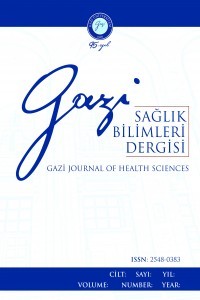Erişkin dönemi romatolojik hastalıklarda rehabilitasyon yönetimi
Kanıta dayalı tedavi kılavuzları uygun tedavinin seçiminde ve sağlanmasında bir araç görevi görür. En iyi tedavi kararı için her hastanın durumu, şikeyetleri ve hedefleri dikkate alınmalıdır. Spondiloartrit, psöriyatik artrit ve romatoid artrit gibi inflamatuar artritler ve osteoartritli bireyler için hazırlanan EULAR kılavuzu genel ilkeleri kapsamında tedaviye uyum ve katılımı artırmada hasta merkezli ve biyopsikososyal bakış açısıyla değerlendirme ve tedavi yer almaktadır. Bireye özgü ve ortak kararlar ile şekillenen ağrı yönetimi, öz-yönetim ve multidisipliner tedavi kuvvetle önerilmektedir. Ayrıca egzersiz, ortez ve kognitif davranışsal terapileri içeren psikolojik ve sosyal müdahaleler, uyku müdahalesi ve kilo yönetimi tavsiye edilmektedir. Egzersiz romatizmal hastalıkların yönetiminde mihenk taşıdır. Özellikle farmakolojik tedavilerle uygulanan egzersizin hastalık sonuçları üzerine sinerjisitik ve anti-inflamatuar etkileri olduğu bilinmektedir. Yorgunluğu olan sistemik sklerozlu bireylerin tedavisinde düzenli egzersiz (özellikle düşük etkili aerobik egzersiz), enerji tasarrufu, iyi uyku hijyeni ilkeleri ve gevşeme egzersizlerini içeren hasta eğitimi yer almaktadır. Benzer şekilde Sjögrende de yorgunluk için kuvvetli önerilen tek tedavi egzersiz iken sistemik otoimmün miyopatide dirençli/aerobik egzersizin hastalığın tüm aşamalarında ilaç tedavisine ek olarak kullanımı tavsiye edilmektedir. Son yıllarda kronik düşük dereceli inflamatuar bir durum olduğu düşünülen fibromyaljide de biyopsikososyal durumun kapsamlı değerlendirilmesi ve temel tedavi kapsamında egzersiz (aerobik ve kuvvetlendirme egzersizleri) önerilmektedir. Kılavuzların önerilerine uyan, etkinliği kanıtlanmış, kendine ait hastayı biyopsikososyal yönden değerlendiren ölçeğe sahip olan, güvenilir ve anti-inflamatuar etkisi gösterilmiş egzersiz modeli olan Bilişsel Egzersiz Terapi Yaklaşımının (BETY) erişkin dönemi romatizmal hastalıklarda kullanımı hastaya bütüncül yaklaşılmasını sağlayacak ve hastalık yönetimini kolaylaştıracaktır.
Anahtar Kelimeler:
İnflamasyon, egzersiz, romatizmal hastalıklar, kronik ağrı, öz-yönetim
Rehabilitation management in adult rheumatological diseases
Evidence-based treatment guidelines serve as a tool in the selection and delivery of appropriate treatment. Each patient's condition, complaints, and goals should be considered for the best treatment decision. Within the scope of the general principles of the EULAR guideline prepared for individuals with inflammatory arthritis such as spondyloarthritis, psoriatic arthritis and rheumatoid arthritis and osteoarthritis, assessment and treatment are included in patient-centered and biopsychosocial perspective to increase treatment compliance and participation. Pain management, self-management and multidisciplinary treatment shaped by individual and shared decisions are strongly recommended. In addition, psychological and social interventions including cognitive behavioral therapies, exercise, orthotics, sleep intervention and weight management are recommended. Exercise is a cornerstone in the management of rheumatic diseases. It is known that exercise, especially applied with pharmacological treatments, has synergistic and anti-inflammatory effects on disease outcomes. Treatment of individuals with systemic sclerosis with fatigue includes patient education including regular exercise (especially low-impact aerobic exercise), energy saving, good sleep hygiene principles, and relaxation exercises. Similarly, while exercise is the only strongly recommended treatment for fatigue in Sjögren, it is recommended to use resistant/aerobic exercise in addition to drug therapy in all stages of the disease in systemic autoimmune myopathy. In fibromyalgia, which is thought to be a chronic low-grade inflammatory condition in recent years, comprehensive evaluation of the biopsychosocial status and exercise (aerobic and strengthening exercises) are recommended as the basic treatment. The use of Cognitive Exercise Therapy Approach (BETY), which is an exercise model that complies with the recommendations of the guidelines, has a proven efficacy, its own scale that evaluates the patient in biopsychosocial terms, has shown anti-inflammatory effect and is reliable in adult rheumatic diseases, provide a holistic approach to the patient and facilitate disease management.
Keywords:
Inflammation, exercise, rheumatic diseases, chronic pain, self-management,
___
- 7. Ulusal Romatolojik Rehabilitasyon Kongresi bildirisidir.
- ISSN: 2548-0383
- Yayın Aralığı: Yılda 3 Sayı
- Başlangıç: 2015
- Yayıncı: Gazi Üniversitesi
Sayıdaki Diğer Makaleler
Jüvenil idiopatik artrit ve epigenetik
Romatoid artritte pulmoner tutulumda değerlendirme
Romatoid artrit rehabilitasyonunda kılavuzlar ne diyor?
Sinem ÖZGÜL, Özgül ÖZTÜRK, Arif GÜLKESE
Farklı ağrı şiddetlerinin fibromiyalji sendromu olan bireylerdeki etkisinin incelenmesi
Esra AKIN, İsmail SARACOGLU, Merve AKDENİZ
Skleroderma Hastalarında Gastrointestinal Sistem Tutulumu, Beslenme ve Yutma
